Stroom Invest interview / artist Alex Andropoulos
Alex Andropoulos, half Greek and half Scottish, started playing the drums at the age of eleven. Nowadays he creates sculptures, is a performer and still drumming. But he does not do this enough: “I am frustrated by the fact that we don’t manage to play more.”
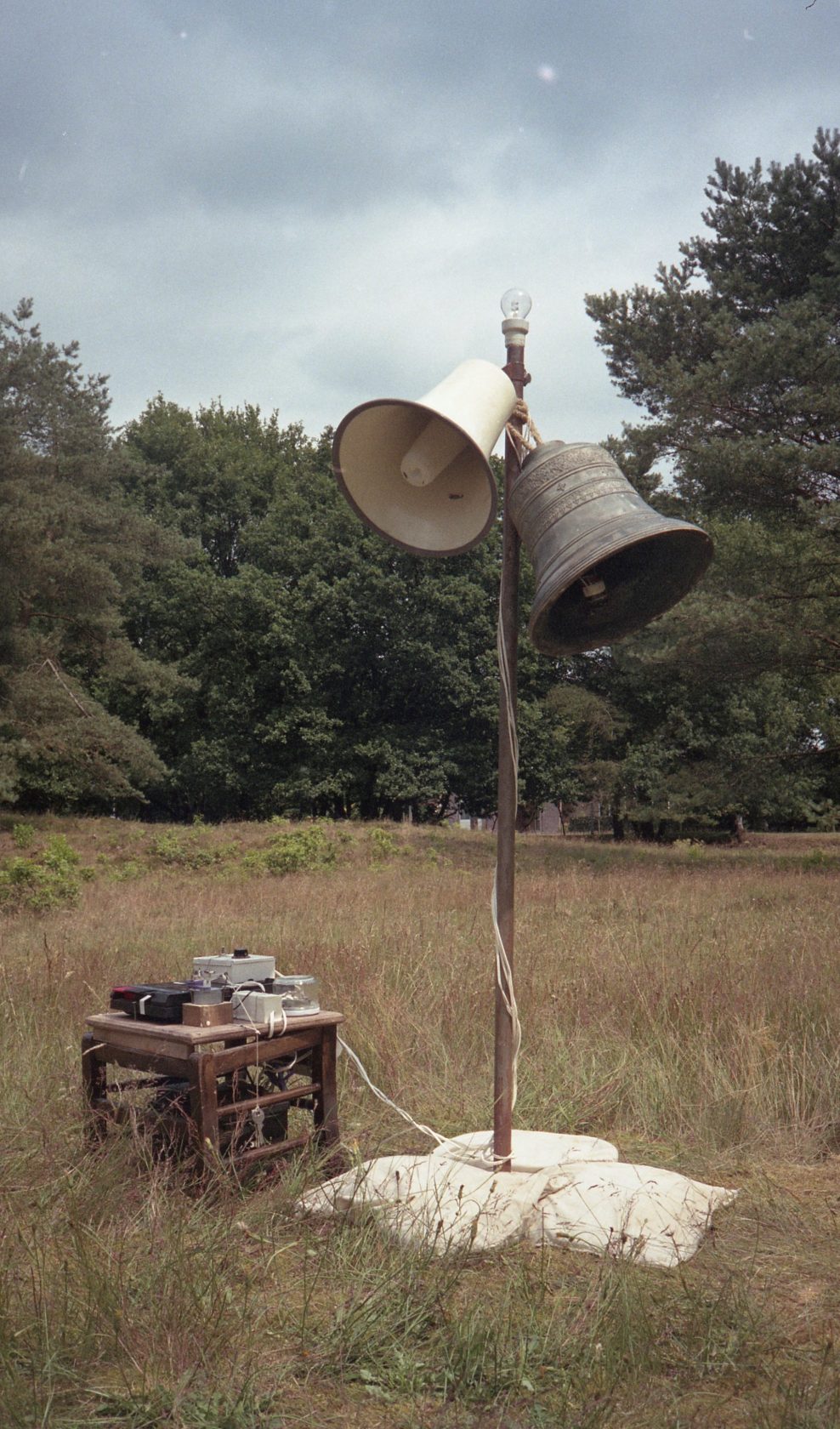
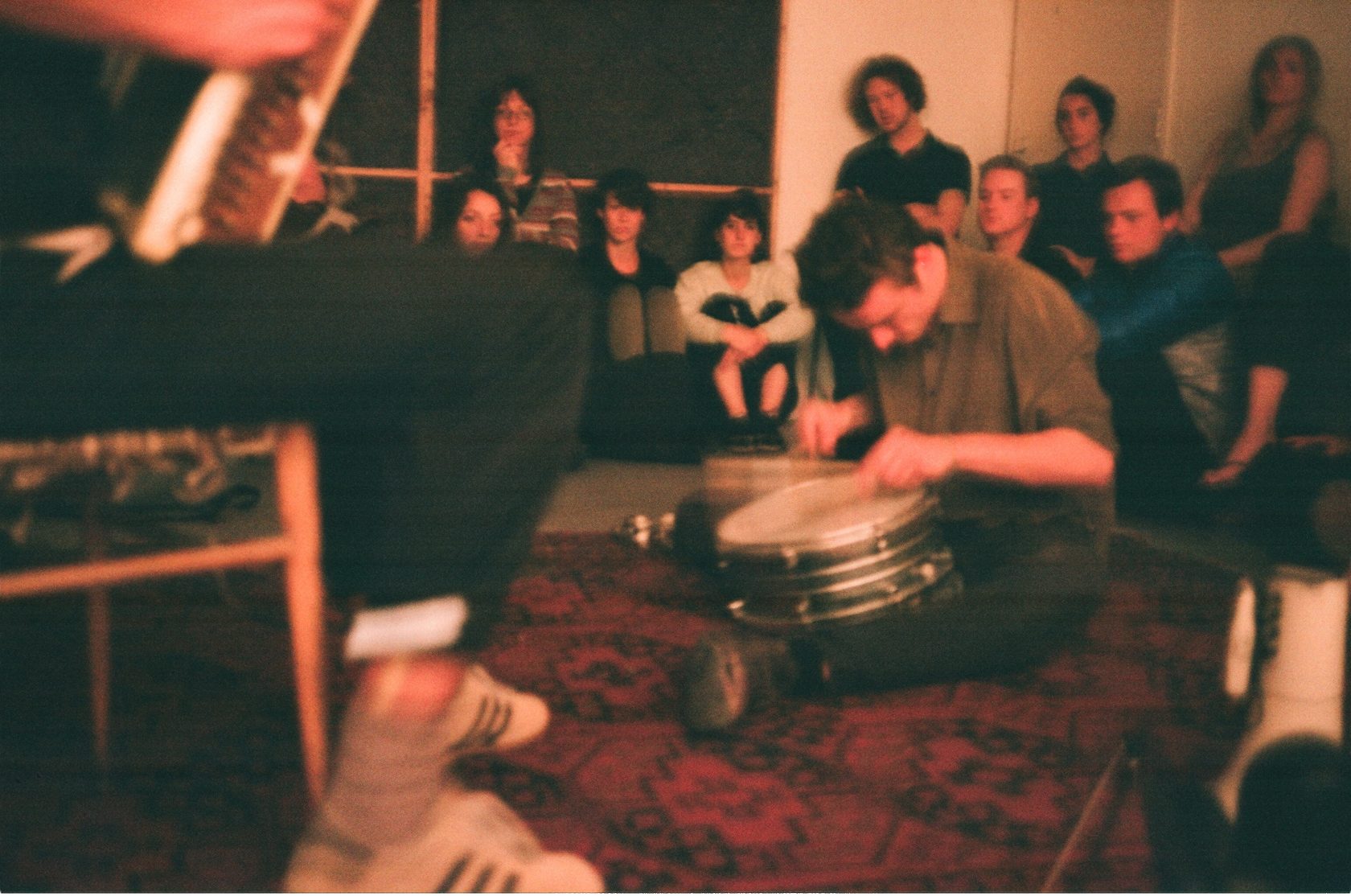
Mirjam Verloop: You are one of the participating artists in Stroom Invest Week. How important is support for you?
Alex Andropoulos: The practicalities of financial support just make things easier. I discovered a while ago that I am not good at working a job alongside my artistic practice. I need to split the two, so work for three months to earn money and then focus on my artistic work. This cloud of financial support makes this more possible.
I am quite obsessive and lock myself up to work. But the interaction is beneficial. Something like Stroom Invest Week forces me to have conversations with others. I often forget to do that – there are times when I don’t meet people and don’t share ideas. That can be beneficial for letting my ideas develop into work. But once in a while, I should come out of my cave and interact with people. That serves as a boost of confidence and a confirmation that my ideas make sense.
The cave feels the opposite of the more outgoing nature of your performances. How do you see that?
I have three sides: my sculptural work, my performances – which most of the time, but not exclusively, are collaborations with Zahar Bondar, and my music. These three elements are important to me – they are what I live for. They are intertwined and, of course, they influence each other.
I need the difference between locking myself in my cave and the collaborative process and more social nature of performing. The cave is an exaggeration of course – I share my studio space and there are other artists around me. But it can feel like an island. I could avoid talking about my work. Performance involves reflecting on that with someone else, Either by talking about the experience or by working on a piece together.
You collaborate often with Zahar Bondar. How did you and he meet?
Zahar is trained as a professional acrobat. I grew up making music and playing concerts. The physicality of performance and the social element are very important. We both studied sculpture in art school and met in my third year. He walked by my studio, saw a drum kit and decided to play. Although he hardly spoke English, we managed to communicate by playing music together and wrote a piece together.
Both Zahar and I are really bad at working with other people. We are both quite scared of it in a sense. The idea of compromising or not having a full understanding of each other’s objectives is very uncomfortable for us. We became friends and felt that in our performances, we completed each other and fulfilled each other’s needs. I feel the same with music collaborations. I’m in a music duo with George Knegtel called Able Noise and we could not even dream of having more than the two of us.
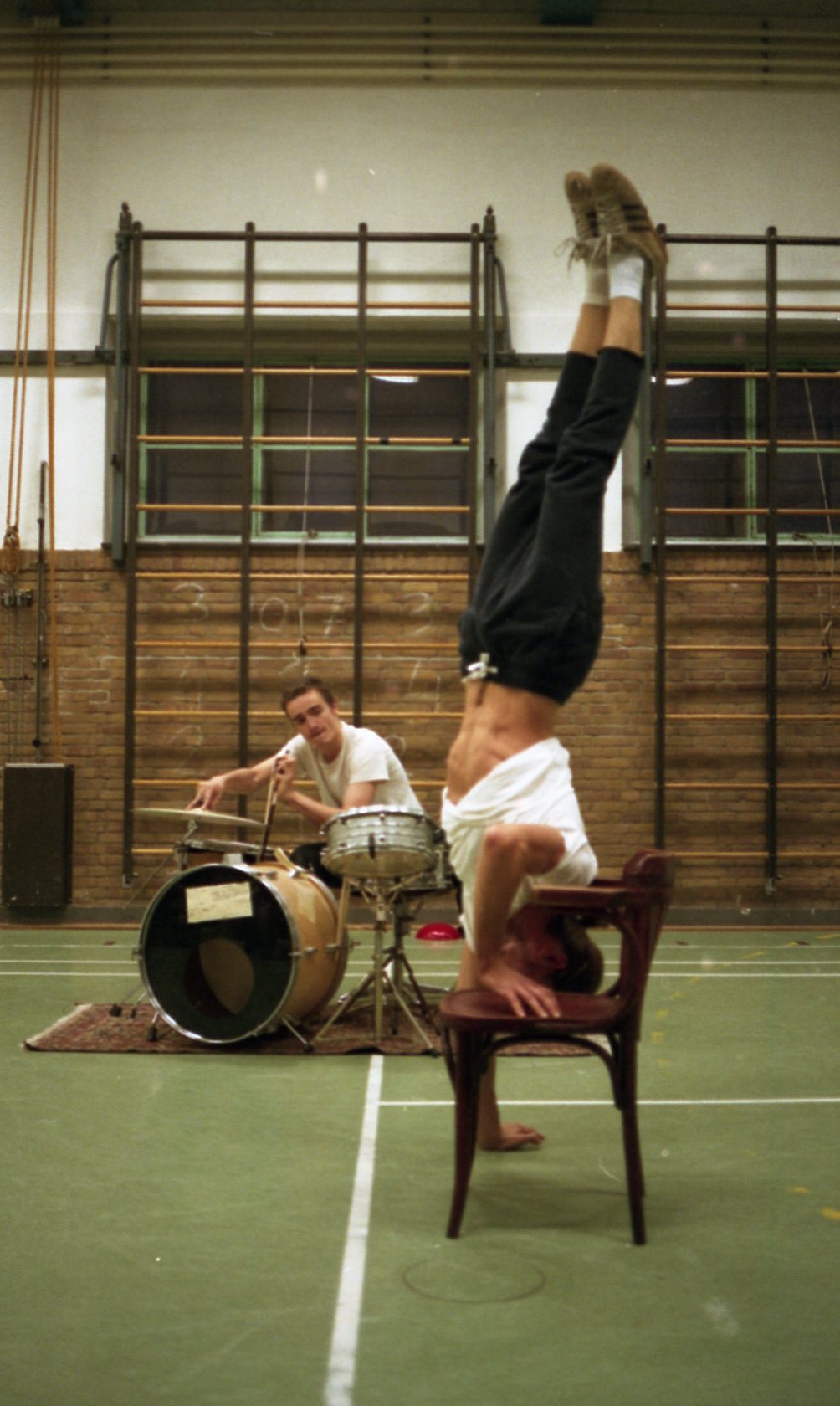

Performances and music are in some way a collaboration with an audience. How do you feel about that?
The audience is vital, both in music and performances. We are much more interested in performing music live than in recording. The experience of performing in front of a crowd is completely different from a studio.
A performance greatly depends on the audience. The performances are not simply a medium, it is a personal need. We need the physical experience of performing in front of someone. The moment of performance is grounding, I always manage to forget about anything else. Zahar and I want to keep away from routines. There are elements we improvise each time. We are trying to develop ideas constantly. It keeps us on our toes.
Do you communicate during the performance?
Often, a lot of communication isn’t necessary. We just literally speak to or point at each other. Comedy is also important, with humour and irony in our performances. But it is not a malicious irony. If we make a joke about the audience, it is to break the ice. With comedy and music, we try to build up trust with people. When we have their trust and attention, we can press our more existential points. People should feel included, that we are doing it for them.
How do you get from an idea to a piece?
There isn’t one way I go about it. Travelling often triggers me. I see things in nature, the interaction between people or I see something on the street. I might write these things down and once in a while, I go through my notes. That could trigger something for me, but more often, work is an assemblage of all these ideas. I have discovered that I have a bad imagination. The only way I can picture things is by having it physically in front of me. Interestingly enough, that is similar to performing. The big difference with performance is that there is someone else coming up with ideas too. We are comfortable enough to share these ideas.
There are more conceptual ideas too. I carry around ideas that I want to address. They sit in the ‘drawer’ until they manage to manifest within a context.
These ideas perhaps stay in the drawer for months or years?
Definitely. I have become much more comfortable with that. When I have an idea, it doesn’t mean it has to be made right away. In music, that is completely natural, I can write lyrics and keep them in my notebook for years until I finally find the context.
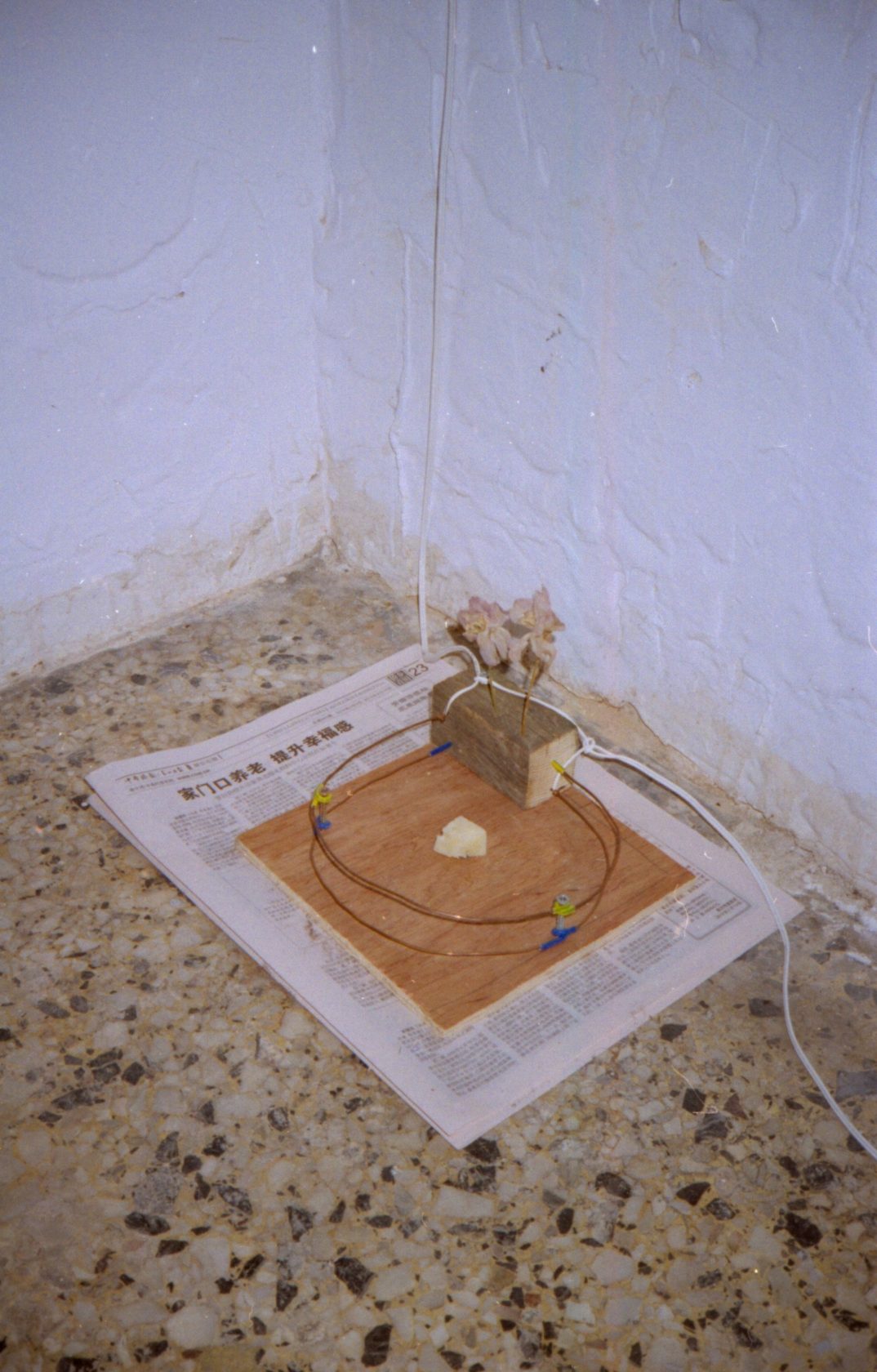
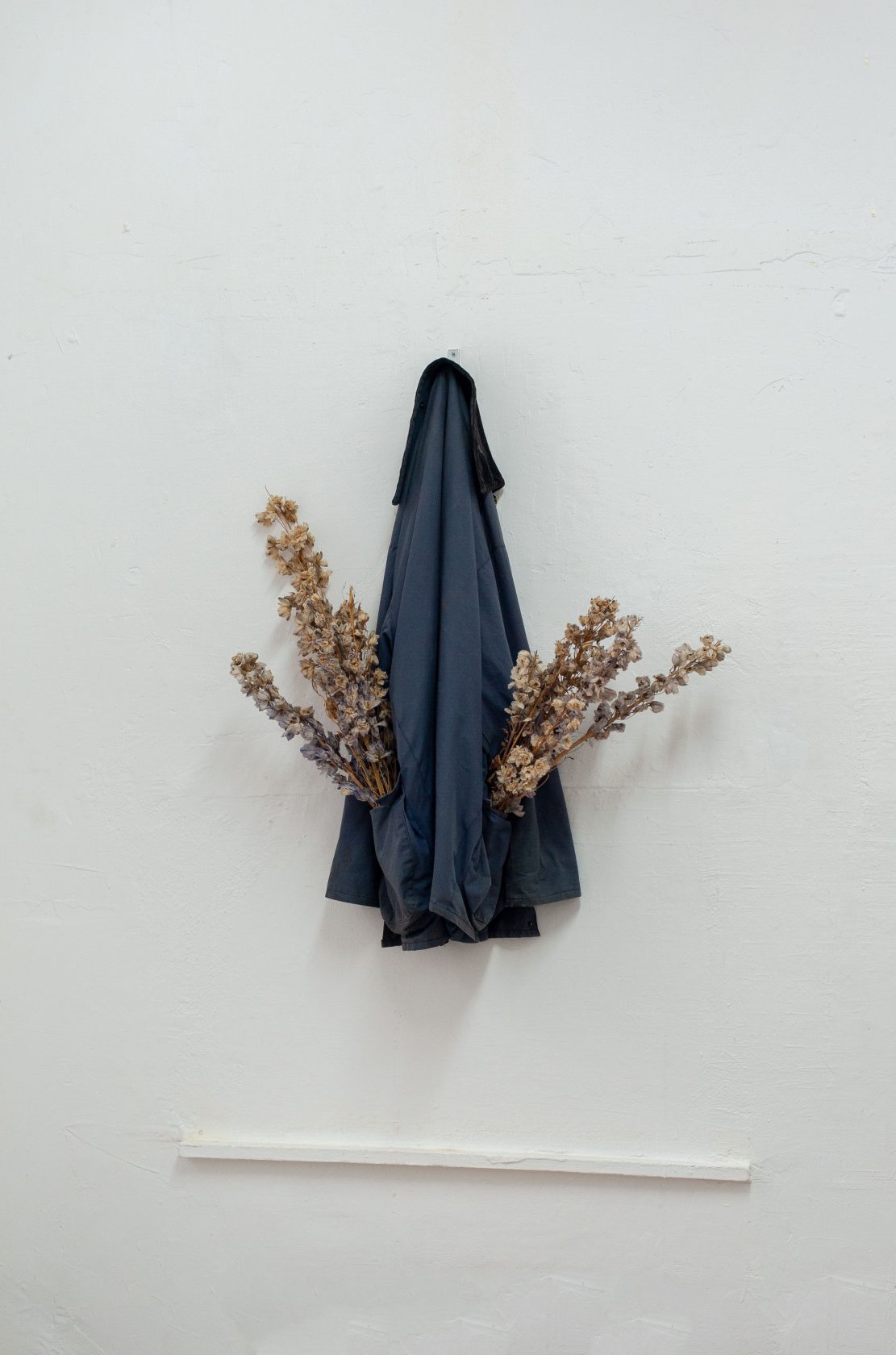
Is there anything that frustrates you?
I am very cynical, socially and politically. I think this is my Greek side, constantly frustrated at people’s attitudes: their apathy and the self-righteousness that comes with it. Socially, I am very frustrated and annoyed. I am opposed to cynicism, but I do have it. I try to reflect on it, and either improve myself or the relationship with people around me. I also have environmental concerns and huge political frustrations about Greece and a large part of Europe, including the Netherlands.
Do these frustrations and concerns affect your work?
Yes and no. I realised I went through a phase of feeling almost guilty about the fact that I am able to make art – especially concerning so many friends of mine in Greece. They can, of course, make the drawings, but because of social and economical pressure, they aren’t capable to financially get into it. Due to that guilt, I felt pressure to address this. After a while, I realised that my political and social concerns can be addressed better in other ways. Such as in conversations that I have with other people.
Everything we do has a social and political influence. I want to live socially and politically aware of my actions. We have a huge influence as consumers. What we buy is a weapon. So I get frustrated that people seem to refuse to think about that. I like to address that in music and performances. It makes sense to do it verbally in a room with hundreds of people. Zahar and I are conscious of how we can address various topics in an artistic context.
My sculptural work has references to this. My attraction to anarchist ideas and philosophy is indirectly visible in my work. It is unconscious sometimes, but it is there. I am also socially aware of how I construct my work. I need to reuse everything I make. I produce more waste and trash than I would like.
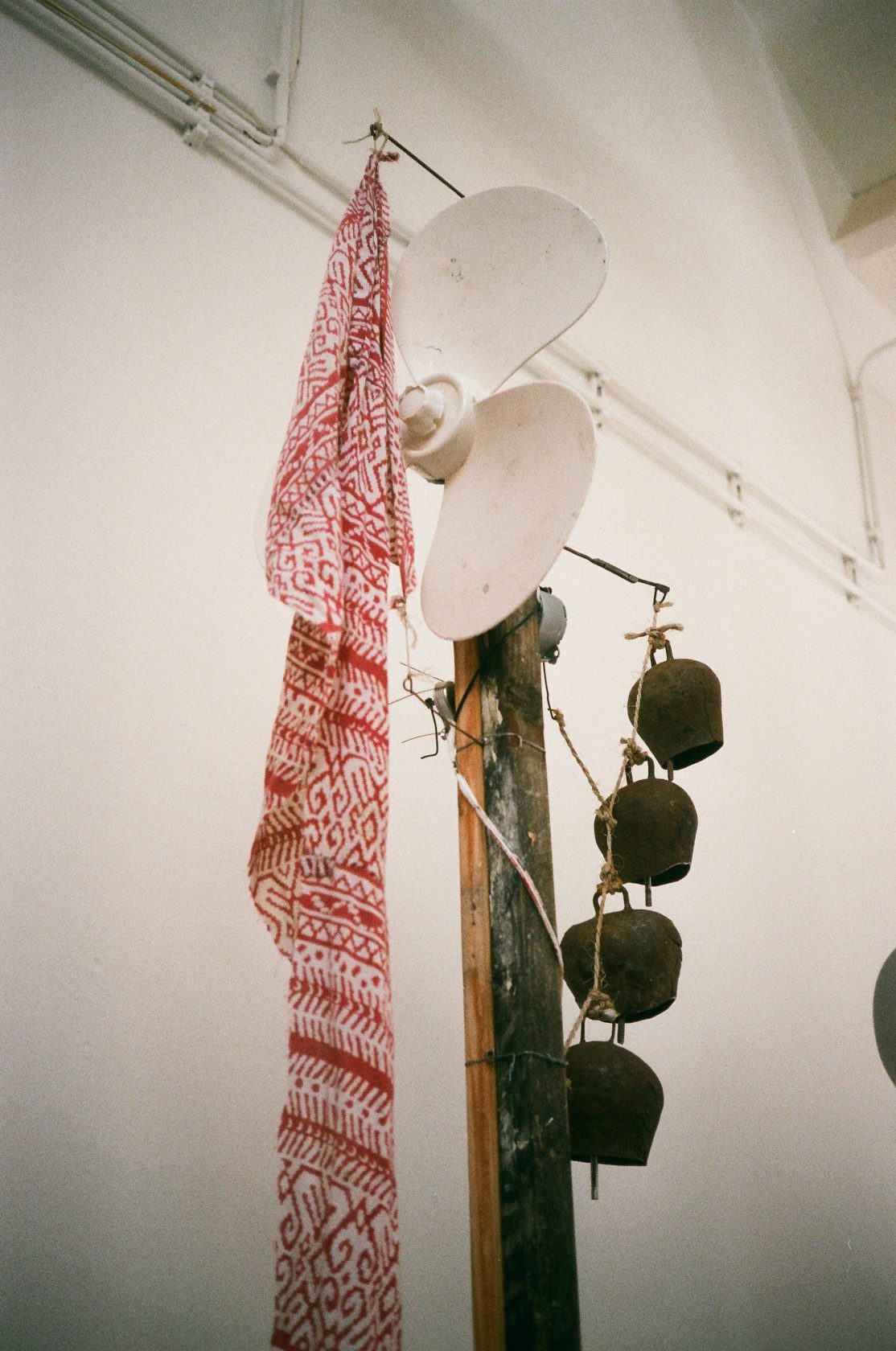

When did you realise that you wanted to go to art school?
I grew up in the outskirts of Athens and I hated school. That is why I found pleasure in playing music. I started playing the drums when I was eleven. Music was around me, my older brother played. Throughout my later teens, it was my form of escape. I am proud of the fact that when I was fourteen, we would probably play concerts almost every weekend.
Greece is very academic. If you can study, you have to. If you have the money to study abroad, you have to. I felt that I had to study abroad too. I was interested in anthropology, but not academically good enough to study it nor music. In a very apathetic and unconscious way, I ended up in art school.
I made colourful cartoons in the first year of art school. I was shocked by my classmates’ art and thinking processes. It was such an alien world to me. I ended up in the sculpture department. I was into painting, but I felt more comfortable at the sculpture department making paintings than being a painter among painters. The physical work was more natural for me. Sculpture was something I wanted to do. But while I was focusing on that, I also felt this big absence of sharing a creation with people. I was making music on the side and I discovered I could do performances to share moments with people. Zahar linked in and we started to push each other forward.
Was art school competitive?
It was always communal in art school. We hung out and talked about art. Of course, there is always some competition, but up until graduation, it was always beneficial. This shifted during graduation. The fact that gallery owners and curators walk around the show made people feel jealous or competitive. Nowadays, I am extremely competitive when it comes to music. I hate it that we don’t play more concerts.
How do you shake it off?
I rant for about 30 seconds to my girlfriend and then I realise that it is not going to solve anything. Then I just keep playing.
What is your aim for the future?
I love playing concerts. I am frustrated by the fact that we don’t manage to play more. Making that more frequent is a big aspiration. The same goes for the performances with Zahar. We are constantly developing them but rarely perform them, especially now with Corona, as having a big amount of people huddled together to hold up a chair with Zahar on top is currently not a good idea. Corona has kicked in which pooped our party.
I am quite happy with the time I have and the environment I am in. A lot of energy has gone into that, but I feel I still have a lot of energy to spend. Furthermore, I would love to see people become more self-aware of their position in relation to society and the planet, maybe to be more empathic to both. Though I haven’t figured out how to write that into a sculpture or performance yet.
Many thanks to Adrian Murphy for his feedback.
Stroom Invest Week is an annual 4-day program for artists who were granted the PRO Invest subsidy. This subsidy supports young artists based in The Hague to develop their artistic practice so that artists and graduates of the art academy can continue to live and work in The Hague. To give the artists extra incentive, Stroom organises this week consisting of an evening of public talks, studio visits, presentations and several informal meetings. The intent is to broaden the visibility of artists from The Hague through future exhibitions, presentations and exchange programs. Stroom Invest Week 2020 will take place from 21 to 25 of September.